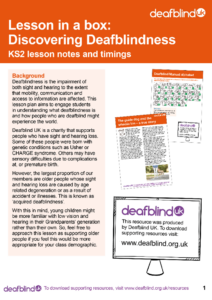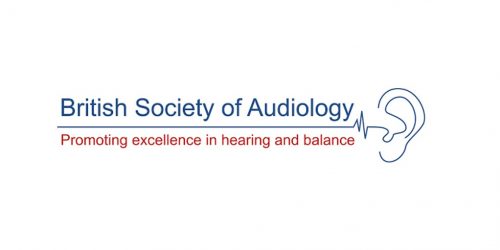See below an update from Deafblind UK
“Standing out and fitting in with Deafblind UK 
Although single sensory loss is well understood and sup ported in education, national charity Deafblind UK is concerned that dual sensory loss (otherwise known as deafblindness, Multi-Sensory Impairment (MSI) and Dual Sensory Impairment (DSI)), may not be as widely understood within mainstream educational settings. As a result, Deafblind UK embarked on a research project to identify mainstream teacher’s understanding of deafblindness, and their school policies surrounding this specialist need. They also spoke to parents of deafblind students to identify how they felt about the current support provision. The findings are published in the report ‘Standing out and fitting in, 2023’ which is available to download from https://deafblind.org.uk/for-professionals/schools/.
The report shows that many teaching staff feel under prepared to manage the specific needs of children with deafblindness. Likewise, it highlights the vast input that parents state they have to provide for schools in order for their children to receive a high standard of education covering both academic and social needs. This can include training classroom teachers on specific strategies which allow their child to be included in normal classroom activities as well as helping staff to understand the specifics of their child’s condition.
 In response to this research, Deafblind UK has developed a set of resources to teach children in key stages 2, 3 and 4 about deafblindness. This includes lesson plans and assemblies for teachers to deliver independently, which highlight real life stories about people that Deafblind UK supports. These resources aim to show both students and teachers that people who are deafblind might experience the world differently but can still achieve, with the right support. Their purpose is to teach students that people who are deafblind are not disabled, but differently abled. As Deafblind UK members show, it often only takes a small adaptation to make something inclusive for everyone. Deafblind UK hopes that by teaching the next generation about deafblindness, we can increase empathy and understanding of deafblindness across our society. ”
In response to this research, Deafblind UK has developed a set of resources to teach children in key stages 2, 3 and 4 about deafblindness. This includes lesson plans and assemblies for teachers to deliver independently, which highlight real life stories about people that Deafblind UK supports. These resources aim to show both students and teachers that people who are deafblind might experience the world differently but can still achieve, with the right support. Their purpose is to teach students that people who are deafblind are not disabled, but differently abled. As Deafblind UK members show, it often only takes a small adaptation to make something inclusive for everyone. Deafblind UK hopes that by teaching the next generation about deafblindness, we can increase empathy and understanding of deafblindness across our society. ”





